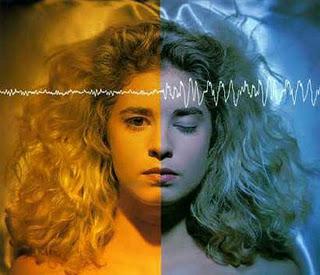
Narcolepsy is a chronic illness that affects the sleep patterns within patients and has been the focus of many research studies over the past fifty years. The sleeping disorder is typically characterized by substantial psychosocial morbidity and a relatively poor health related quality of life (Dorris et al., 2008) and has been associated with many symptoms.However, the disorder is typically characterized by five reoccurring symptoms which include: Excessive day time sleepiness (EDS). EDS is a major component of narcolepsy and is associated with above average tiredness throughout the day. Cataplexy. The loss of muscle tone associated with strong emotions such as laughing or crying, patients who display this symptom of narcolepsy will generally fall asleep when enduring higher than average emotional stress or excitation. Sleep paralysis, a transient period of inability to perform voluntary movements at the onset of sleep or upon awakenings (Dorris, Zuberi, Scott, Moffat, & Macarthur, 2008). It has been shown that Sleep paralysis is not uncommon within narcolepsy; however research has indicated that it can also affect a portion of the population who have not been diagnosed with any sleeping disorders and are relatively healthy (Dodel, et al., 2007). Highest ratings of these types of sleeping paralysis episodes have been found within cultures foreign to North America, such as Asia, as well as Africa and tends to have different names throughout various cultures, for an example; throughout Japan an episode of sleep paralysis is referred to “ghost oppression”; and throughout Mexico it is referred to the phrase “a dead body climbed on top of me” (Jimenez-Genchi, Avila-Rodriquez, Sanchez-Rojas, Vargas-Terrez, & Nenclares-Portocarrero, 2009). Sleep paralysis within narcolepsy, is typically followed by another symptom of hallucinations. Patients may experience these hallucinations upon falling asleep and waking, and will often report that they feel a presence within the room or will account for something that did not actually happen. Finally, the last symptom within this disorder is disrupted night time sleeping (DNTS). It has been shown that DNTS is associated with other narcoleptic symptoms, especially EDS (Dorris, Zuberi, Scott, Moffat, & Macarthur, 2008). All five characterizing symptoms of narcolepsy are not typically presented during a single episode, especially during the initial onset of the disorder. However, these would be the most general symptoms to depict and characterize the narcolepsy sleeping disorder.

It is of particular concern that children who suffer from narcoleptic symptoms tend to have a higher failure rate within their academics. Although, it has been suggested that narcolepsy has little to no effects on the cognitive abilities within humans, it has been indicated that patients typically feel that their academic experiences are influenced by their disorder (Dorris et al., 2008). Perhaps it is possible that poor academic achievement may be associated with the underlying symptoms of narcolepsy, such as EDS, sleeping attacks (cataplexy), as well as restless nights Furthermore, it is quite possible that these symptoms may impair the child during the day and affect their academic performance, therefore leaving children with narcolepsy with an overall disadvantage compared with their healthy counterparts. Researchers should also look at the possibilities that there may be an indirect learning disability stemming from the daily impairments of narcolepsy.
To conclude, Narcolepsy is a life time sleeping disorders which effects mostly children, however treatment is usually put off until adulthood. symptoms caused by narcolepsy tend to have no known effect upon a person's cognitive abilities, however within some studies patients have been shown to have slower processing times. again this could very well be because they had a poorer quality of sleep the night before. even though there are no effects of cognitive abilities, there is a large concern that narcolepsy effects a person's everyday life and most importantly, their academic career. It is important to note that although there is many studies done on this topic within the past 50 years, many results have been contradictory. this makes it even harder to determine what effects the sleeping disorder has upon a child's academic success. for more readings on narcolepsy, check out the author's articles mentions within the text.
thanks for reading and if you have a request for what the next Psychological Monroe blog should be about, Tweet us at @psychologicalmo
Dodel, R., Peter, H., Spottke, A., Noelker, C., Althaus, A., Siebert, U., et al. (2007). Health related quality of life in patients with narcolepsy. Sleep Medicine, 8, 733-741. Dorris, L., Zuberi, S. M., Scott, N., Moffat, C., & Macarthur, I. (2008). Psychosocial and Intellectual Functioning in Childhood Narcolepsy. Developmental Neurorehabilitation, 11(3), 187-194. Jimenez-Genchi, A., Avila-Rodriquez, V. M., Sanchez-Rojas, F., Vargas-Terrez, B. E., & Nenclares-Portocarrero, A. N. (2009). Sleep Paralysis in Adolescents: The 'a dead body climbed on top of me' Phenomenon in Mexico. Psychiatry and Clinical Neurosciences, 63, 546-549.

